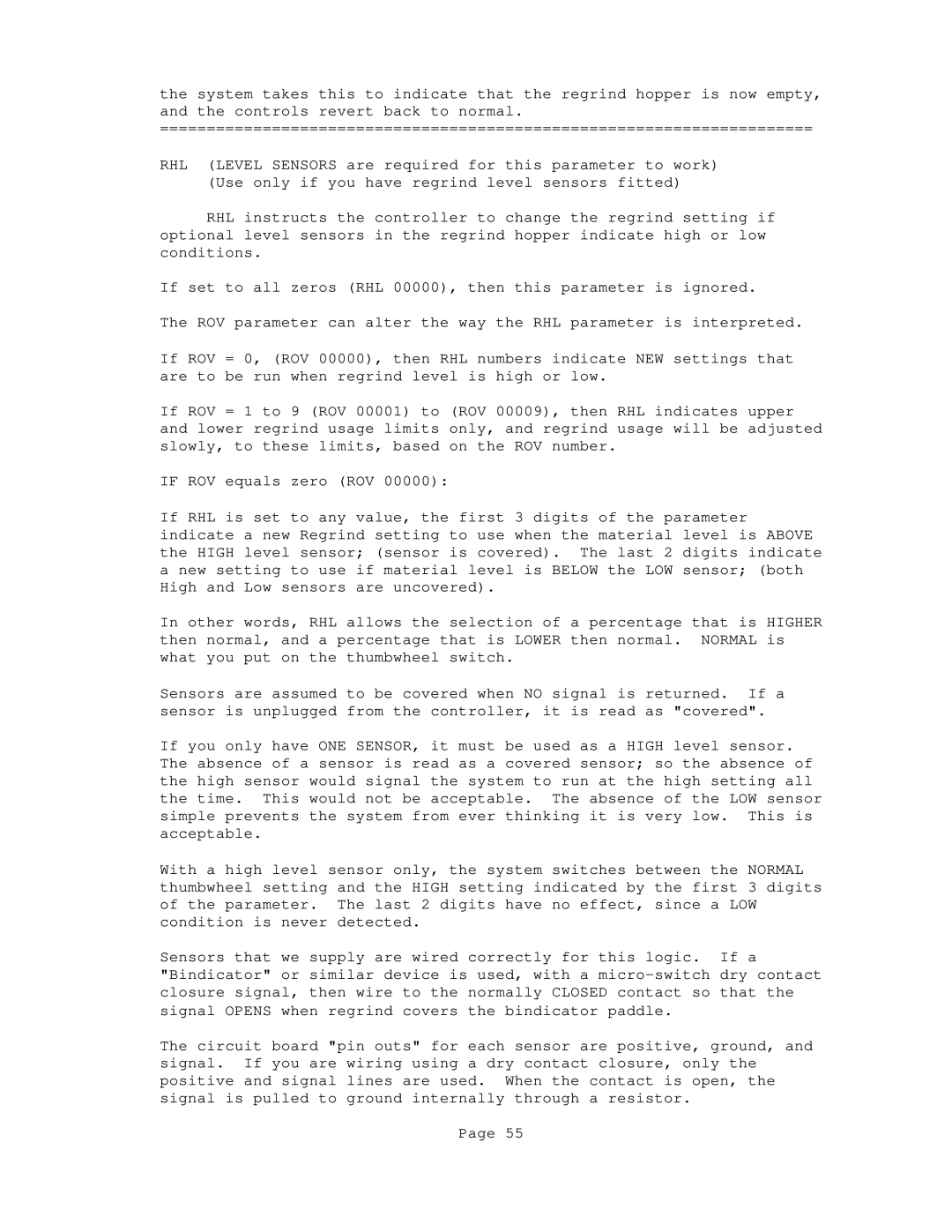the system takes this to indicate that the regrind hopper is now empty, and the controls revert back to normal.
======================================================================
RHL (LEVEL SENSORS are required for this parameter to work) (Use only if you have regrind level sensors fitted)
RHL instructs the controller to change the regrind setting if optional level sensors in the regrind hopper indicate high or low conditions.
If set to all zeros (RHL 00000), then this parameter is ignored.
The ROV parameter can alter the way the RHL parameter is interpreted.
If ROV = 0, (ROV 00000), then RHL numbers indicate NEW settings that are to be run when regrind level is high or low.
If ROV = 1 | to 9 (ROV 00001) to | (ROV 00009), then | RHL indicates | upper |
and lower regrind usage limits | only, and regrind | usage will be | adjusted | |
slowly, to | these limits, based | on the ROV number. |
|
|
IF ROV equals zero (ROV 00000):
If RHL is set to any value, the first 3 digits of the parameter indicate a new Regrind setting to use when the material level is ABOVE the HIGH level sensor; (sensor is covered). The last 2 digits indicate a new setting to use if material level is BELOW the LOW sensor; (both High and Low sensors are uncovered).
In other words, RHL allows the selection of a percentage that is HIGHER then normal, and a percentage that is LOWER then normal. NORMAL is what you put on the thumbwheel switch.
Sensors are assumed to be covered when NO signal is returned. If a sensor is unplugged from the controller, it is read as "covered".
If you only have ONE SENSOR, it must be used as a HIGH level sensor. The absence of a sensor is read as a covered sensor; so the absence of the high sensor would signal the system to run at the high setting all the time. This would not be acceptable. The absence of the LOW sensor simple prevents the system from ever thinking it is very low. This is acceptable.
With a high level sensor only, the system switches between the NORMAL thumbwheel setting and the HIGH setting indicated by the first 3 digits of the parameter. The last 2 digits have no effect, since a LOW condition is never detected.
Sensors that we supply are wired correctly for this logic. If a "Bindicator" or similar device is used, with a
The circuit board "pin outs" for each sensor are positive, ground, and signal. If you are wiring using a dry contact closure, only the positive and signal lines are used. When the contact is open, the signal is pulled to ground internally through a resistor.
Page 55
